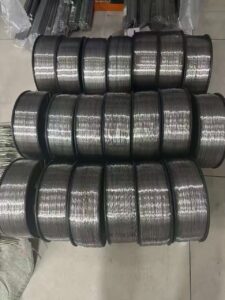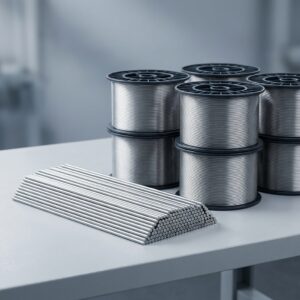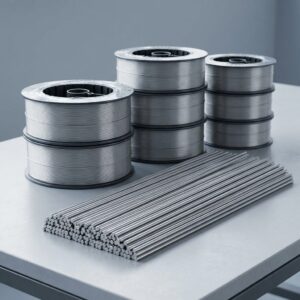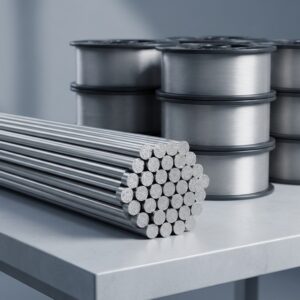Unveiling the Marvels of T10 Mould Steel: A Comprehensive Exploration
Introduction
In the domain of mould steels, certain alloys shine brightly for their exceptional properties vital for diverse industrial applications. Among them is T10 Mould Steel, renowned for its outstanding combination of hardness, toughness, and wear resistance. Join us as we embark on a journey to uncover the intricacies and advantages of this remarkable material, delving into its composition, properties, applications, suppliers, pricing, and expert insights.
Overview of T10 Mould Steel
T10 Mould Steel stands out for its superior properties, rendering it a preferred choice for various moulding applications.
Chemical Composition
| Element | Percentage |
|---|---|
| Carbon (C) | 1.00-1.10% |
| Silicon (Si) | 0.10-0.40% |
| Manganese (Mn) | 0.20-0.50% |
| Phosphorus (P) | ≤ 0.030% |
| Sulfur (S) | ≤ 0.030% |
Mechanical Properties
- Hardness (Rockwell C): 58-61 HRC
- Tensile Strength: 1100-1300 MPa
- Yield Strength: 1000 MPa min
- Elongation: 8-10%
- Impact Toughness (Charpy V-notch): ≥ 20 J
Standards
- T10: International standard for mould steels
Exploring the Features and Advantages
T10 Mould Steel boasts a plethora of features and advantages that make it an ideal choice for moulding applications.
Features
- High hardness and wear resistance
- Good toughness and impact strength
- Excellent machinability and polishability
- Suitable for precision moulds and dies
Advantages
- Widely used in applications requiring precise shaping and forming of materials
- Provides reliable performance under heavy loads and abrasive conditions
- Offers cost-effectiveness and ease of heat treatment for optimizing properties
Comparison Between T10 Mould Steel and Competing Materials
Let’s compare the advantages and disadvantages of T10 Mould Steel with a competing material, Mould Steel X:
| Parameter | T10 Mould Steel | Mould Steel X |
|---|---|---|
| Hardness | High | Moderate |
| Toughness | Good | Very Good |
| Wear Resistance | Excellent | Moderate |
| Cost | Moderate | Higher |
Applications and Uses
From precision moulds to industrial dies, T10 Mould Steel finds extensive application across various industries.
| Industry | Applications |
|---|---|
| Manufacturing | Injection moulds, extrusion dies |
| Automotive | Die casting moulds, forging dies |
| Tooling | Forming tools, stamping dies |
Navigating Suppliers and Pricing
Sourcing T10 Mould Steel requires careful consideration of reliable suppliers offering quality products at competitive prices.
| Supplier | Price Range (per ton) | Description/Notes |
|---|---|---|
| Bohler Uddeholm | $2000 – $2500 | Leading global supplier of mould steels |
| Assab | $1800 – $2200 | Specializes in high-performance tooling materials |
| Daido Steel | $1900 – $2400 | Offers a wide range of mould steel products |
FAQs about T10 Mould Steel
Q: Can T10 Mould Steel be heat treated?
A: Yes, it can be heat treated to achieve desired mechanical properties, such as increased hardness and toughness.
Q: What are the common applications of T10 Mould Steel?
A: Common applications include injection moulds, extrusion dies, and forging dies.
Q: Where can I buy T10 Mould Steel?
A: You can source T10 Mould Steel from reputable suppliers such as Bohler Uddeholm, Assab, and Daido Steel.
Q: What specifications does T10 Mould Steel conform to?
A: This mould steel conforms to standards such as T10, ensuring compliance with stringent quality requirements.





